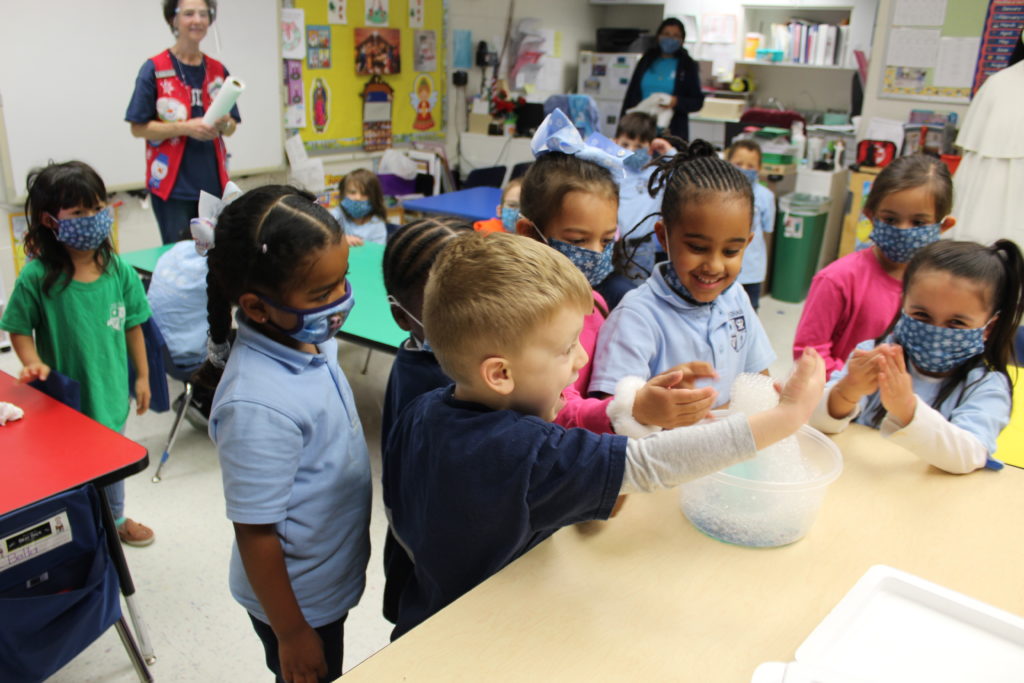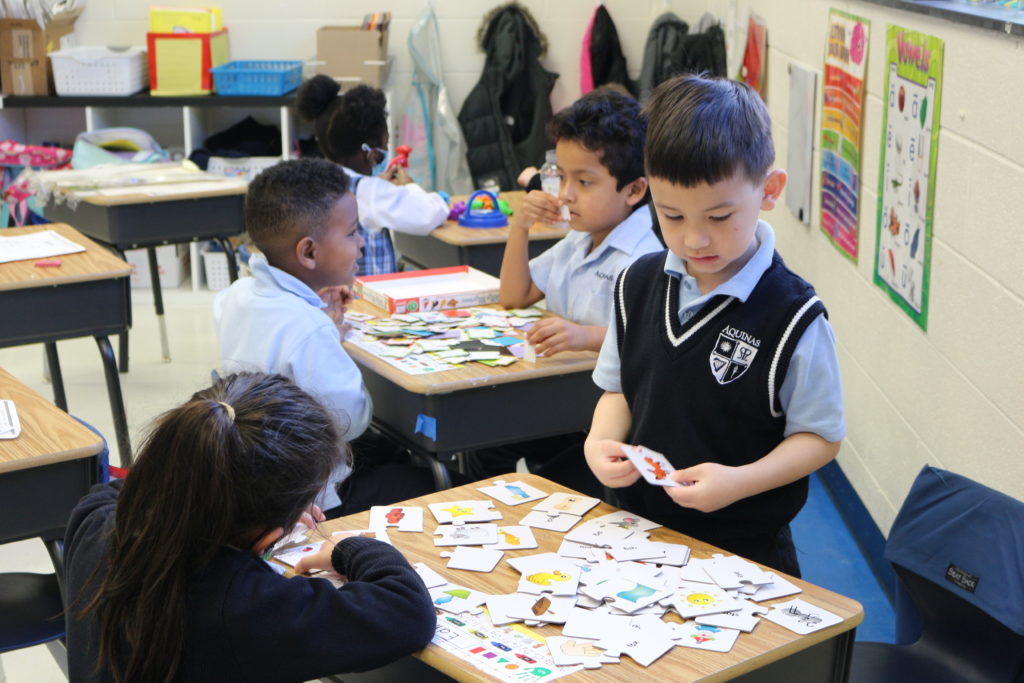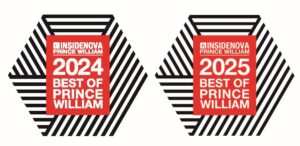
The Aquinas PreK program offers both a 1/2 day (8 AM to 11:45 AM) and a full day option (8 AM to 3 PM). Only PreK students enrolled in the full day program may participated in Extended Day. PreK eats lunch in their classroom and has a short rest time each afternoon.
The Aquinas PreK curriculum includes the following:
Religion: Learn to know, love, and serve God and understand basic religious terms and vocabulary.
Literacy: Concepts taught include oral language, vocabulary, phonological awareness, letter knowledge and word recognition, print and book awareness, and writing.
Mathematics: PreK students focus on comparing and counting numbers, matching and counting objects, using comparisons to begin learning measurement, identifying shapes and making spatial comparison as a foundation for geometry, and identifying patterns as a foundation for algebra.
Science: Young children naturally observe the world around them. The Science curriculum builds on that natural curiousity helping them enhance their observations and develop language to explain them. Concepts taught in class will help them deepen their understanding of force, motion, and energy, and teach them how to better use their five senses to identify and describe objects. Simple experiments will teach physical and chemical reactions and the observation of growing items will teach life processes. Other topics covered are earth and space systems; earth patterns, cycles and changes; and resource conservation.
History and Social Science: Through the study of history, young children begin to develop their own self-awareness as well as awareness of others. Concepts covered include change over time, geography and location, basic economics, and how to be good citizens. Exposure to the variety of words used in the exploration of history will help students further develop their vocabulary.
Health and Physical Development: A variety of activities throughout each school day will help children further develop their large and fine motor skills while also teaching self-awareness and social skills. Daily physical activity, nutrition, and healthy lifestyle habits (such as washing hands, wearing a seatbelt, and emergency protocols) are also part of this subject.
Personal and Social Development: Through support and encouragement provided in the classroom by the teaching staff, students will develop the ability to self-regulate, communicate and interact appropriately with others, and problem solve through the use of effective verbal skills.
Music: Young students benefit from the use of music in daily activities as it boosts memory and encourages engagement supporting acvite learning skills. Children will be exposed to music of all types and will be offered opportunities to participate in the music experience.
Visual Arts: Children will explore sensory experiences through the visual arts and have the opportunity to both view and create art in its many forms. In addition, they will begin developing the vocabulary to communicate about art, learning to express their opinions through both verbal and nonverbal methods.

The Aquinas Kindergarten is a full day program with students attending from 8 AM to 3 PM each day. Kindergarten eats lunch in their classroom and has a short rest time each afternoon. Along with regular classroom activities, students will participate in our specials classes of PE, Art, and Music.
Math: Students will develop introductory math skills through manipulatives, exploratory, and teacher directed learning. Concepts include: sorting and comparing sets of objects, recognizing shapes and sizes of objects, and investigating nonstandard measurement.
Reading/Language Arts: Kindergarten marks the beginning of the reading and writing program. The students will engage in a variety of activities which will introduce and extend emergent literacy skills. Students will be using developmentally appropriate materials to foster fluency, expression and comprehension.
Science: As part of the study of science, students will conduct basic scientific investigation in which they may identify objects through direct observation, separate objects into groups based on a single attribute, and develop questions on predictions based on the observations. They will be introduced to living things and will learn about their basic needs. As part of earth science, they will study weather and in physical science they will explore the properties of matter.
Religion: The goal of religion class in Kindergarten is to develop the Roman Catholic identity of the child – individually, within the family, and within the parish. To this end, students will study creation, old and new testament stories, and stories of saints. They will learn about the sacrament of baptism and become aware of the sacraments of penance, eucharist, and confirmation. Finally, they will study in a general way the commandments along with age-appropriate virtues. They will learn both the method and meaning of genuflection and how to make the sign of the cross.

